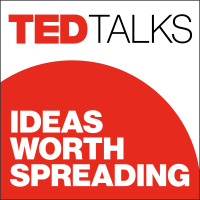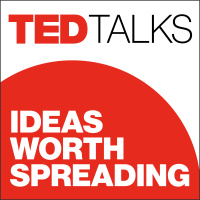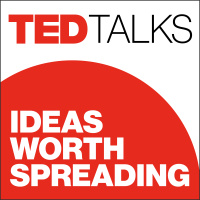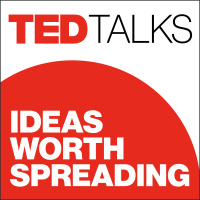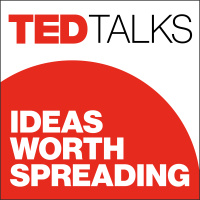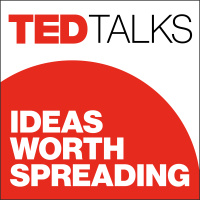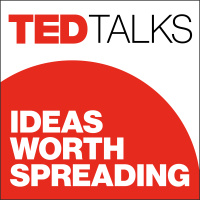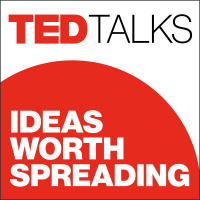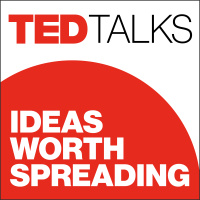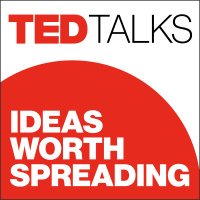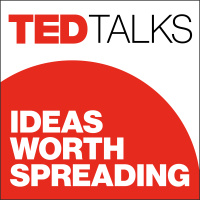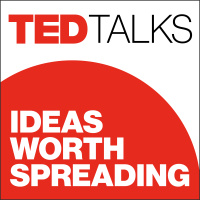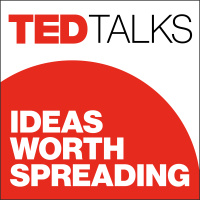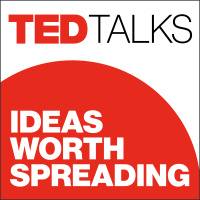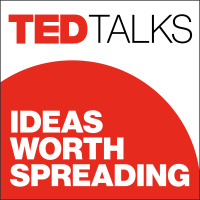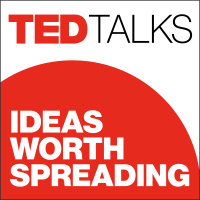Trama
Want TED Talks on the go? Every weekday, this feed brings you our latest talks in audio format. Hear thought-provoking ideas on every subject imaginable -- from Artificial Intelligence to Zoology, and everything in between -- given by the world's leading thinkers and doers. This collection of talks, given at TED and TEDx conferences around the globe, is also available in video format.
Episodi
-
You may be accidentally investing in cigarette companies | Bronwyn King
27/09/2019 Durata: 14minTobacco causes more than seven million deaths every year -- and many of us are far more complicit in the problem than we realize. In a bold talk, oncologist Dr. Bronwyn King tells the story of how she uncovered the deep ties between the tobacco industry and the entire global finance sector, which invests our money in cigarette companies through big banks, insurers and pension funds. Learn how Dr. King has ignited a worldwide movement to create tobacco-free investments and how each of us can play a role in ending this epidemic. Hosted on Acast. See acast.com/privacy for more information.
-
A wall won’t solve America’s border problems | Will Hurd
26/09/2019 Durata: 17min“Building a 30-foot-high concrete structure from sea to shining sea is the most expensive and least effective way to do border security,” says Congressman Will Hurd, a Republican from Texas whose district encompasses two times zones and shares an 820-mile border with Mexico. Speaking from Washington, DC in a video interview with former state attorney general Anne Milgram, Hurd discusses the US government’s border policy and its controversial detention and child separation practices -- and lays out steps toward a better future at the border. (Recorded at the TED World Theater in New York on September 10, 2019) Hosted on Acast. See acast.com/privacy for more information.
-
How we’re building the world’s largest family tree | Yaniv Erlich
25/09/2019 Durata: 09minGenealogist Yaniv Erlich helped build the world’s largest family tree -- comprising 13 million people and going back more than 500 years. He shares fascinating patterns that emerged from the work -- about our love lives, our health, even decades-old criminal cases -- and shows how crowdsourced genealogy databases can shed light not only on the past but also on the future. Hosted on Acast. See acast.com/privacy for more information.
-
How couples can sustain a strong sexual connection for a lifetime | Emily Nagoski
24/09/2019 Durata: 10minAs a sex educator, Emily Nagoski is often asked: How do couples sustain a strong sexual connection over the long term? In this funny, insightful talk, she shares her answer -- drawing on (somewhat surprising) research to reveal why some couples stop having sex while others keep up a connection for a lifetime. Hosted on Acast. See acast.com/privacy for more information.
-
A bold plan to empower 1.6 million out-of-school girls in India | Safeena Husain
23/09/2019 Durata: 10min“Girls’ education is the closest thing we have to a silver bullet to help solve some of the world’s most difficult problems,” says social entrepreneur Safeena Husain. In a visionary talk, she shares her plan to enroll a staggering 1.6 million girls in school over the next five years -- combining advanced analytics with door-to-door community engagement to create new educational pathways for girls in India. (This ambitious plan is part of the Audacious Project, TED’s initiative to inspire and fund global change.) Hosted on Acast. See acast.com/privacy for more information.
-
4 questions you should always ask your doctor | Christer Mjåset
19/09/2019 Durata: 10min“Doctor, is this really necessary?” Backed by startling statistics about overtreatment, neurosurgeon Christer Mjåset explains the power of this and other simple questions in the context of medical treatment and surgery -- and shares how patients can better work with doctors to get the care they need. Hosted on Acast. See acast.com/privacy for more information.
-
How we use astrophysics to study earthbound problems | Federica Bianco
17/09/2019 Durata: 05minTo study a system as complex as the entire universe, astrophysicists need to be experts at extracting simple solutions from large data sets. What else could they do with this expertise? In an interdisciplinary talk, TED Fellow and astrophysicist Federica Bianco explains how she uses astrophysical data analysis to solve urban and social problems -- as well as stellar mysteries. Hosted on Acast. See acast.com/privacy for more information.
-
How climate change could make our food less nutritious | Kristie Ebi
16/09/2019 Durata: 10minRising carbon levels in the atmosphere can make plants grow faster, but there’s another hidden consequence: they rob plants of the nutrients and vitamins we need to survive. In a talk about global food security, epidemiologist Kristie Ebi explores the potentially massive health consequences of this growing nutrition crisis -- and explores the steps we can take to ensure all people have access to safe, healthy food. Hosted on Acast. See acast.com/privacy for more information.
-
The dirty secret of capitalism -- and a new way forward | Nick Hanauer
13/09/2019 Durata: 17minRising inequality and growing political instability are the direct result of decades of bad economic theory, says entrepreneur Nick Hanauer. In a visionary talk, he dismantles the mantra that "greed is good" -- an idea he describes as not only morally corrosive, but also scientifically wrong -- and lays out a new theory of economics powered by reciprocity and cooperation.** Hosted on Acast. See acast.com/privacy for more information.
-
Community-powered criminal justice reform | Raj Jayadev
13/09/2019 Durata: 12minCommunity organizer Raj Jayadev wants to transform the US court system through "participatory defense" -- a growing movement that empowers families and community members to impact their loved ones' court cases. He shares the remarkable results of their work -- including more than 4,000 years of "time saved" from incarceration -- and shows how this new model could shift the landscape of power in the courts.** Hosted on Acast. See acast.com/privacy for more information.
-
What reading slowly taught me about writing | Jacqueline Woodson
12/09/2019 Durata: 10minReading slowly -- with her finger running beneath the words, even when she was taught not to -- has led Jacqueline Woodson to a life of writing books to be savored. In a lyrical talk, she invites us to slow down and appreciate stories that take us places we never thought we'd go and introduce us to people we never thought we'd meet. "Isn't that what this is all about -- finding a way, at the end of the day, to not feel alone in this world, and a way to feel like we've changed it before we leave?" she asks. Hosted on Acast. See acast.com/privacy for more information.
-
A “living drug” that could change the way we treat cancer | Carl June
10/09/2019 Durata: 15minCarl June is the pioneer behind CAR T-cell therapy: a groundbreaking cancer treatment that supercharges part of a patient's own immune system to attack and kill tumors. In a talk about a breakthrough, he shares how three decades of research culminated in a therapy that's eradicated cases of leukemia once thought to be incurable -- and explains how it could be used to fight other types of cancer. Hosted on Acast. See acast.com/privacy for more information.
-
How we can turn racism into a solvable problem -- and improve policing | Phillip Atiba Goff
09/09/2019 Durata: 12minWhen we define racism as behaviors instead of feelings, we can measure it -- and transform it from an impossible problem into a solvable one, says justice scientist Phillip Atiba Goff. In an actionable talk, he shares his work at the Center for Policing Equity, an organization that helps police departments diagnose and track racial gaps in policing in order to eliminate them. Learn more about their data-driven approach -- and how you can get involved with the work that still needs to be done. (This ambitious plan is part of theAudacious Project, TED's initiative to inspire and fund global change.) Hosted on Acast. See acast.com/privacy for more information.
-
Why I became a climate activist -- and why you should too | Luisa Neubauer
06/09/2019 Durata: 17min"I dream of a world where geography classes teach about the climate crisis as this one great challenge that was won by people like you and me," says climate activist Luisa Neubauer. With Greta Thunberg, Neubauer helped initiate "Fridays For Future," the momentous international school strike movement that protests the lack of action on the climate crisis. She shares four first steps that anyone, regardless of age, can take to become a climate activist. "This is not a job for a single generation. This is a job for humanity," she says. Hosted on Acast. See acast.com/privacy for more information.
-
Inside the bizarre world of internet trolls and propagandists | Andrew Marantz
05/09/2019 Durata: 14minJournalist Andrew Marantz spent three years embedded in the world of internet trolls and social media propagandists, seeking out the people who are propelling fringe talking points into the heart of conversation online and trying to understand how they're making their ideas spread. Go down the rabbit hole of online propaganda and misinformation -- and learn we can start to make the internet less toxic. Hosted on Acast. See acast.com/privacy for more information.
-
How to teach teenagers to think critically about porn | Emily F. Rothman
04/09/2019 Durata: 15min"The free, online, mainstream pornography that teenagers are most likely to see is a completely terrible form of sex education," says public health researcher Emily F. Rothman. She shares how her mission to end dating and sexual violence led her to create a pornography literacy program that helps teens learn about consent and respect -- and invites them to think critically about sexually explicit media. Hosted on Acast. See acast.com/privacy for more information.
-
What happened when we paired up thousands of strangers to talk politics | Jochen Wegner
03/09/2019 Durata: 12minIn spring 2019, more than 17,000 Europeans from 33 countries signed up to have a political argument with a complete stranger. They were part of "Europe Talks," a project that organizes one-on-one conversations between people who disagree -- sort of like a Tinder for politics. Editor Jochen Wegner shares the unexpected things that happened when people met up to talk -- and shows how face-to-face discussions could get a divided world to rethink itself.** Hosted on Acast. See acast.com/privacy for more information.
-
A climate change solution that’s right under our feet | Asmeret Asefaw Berhe
03/09/2019 Durata: 13minThere’s two times more carbon in the earth's soil than in all of its vegetation and the atmosphere -- combined. Biogeochemist Asmeret Asefaw Berhe dives into the science of soil and shares how we could use its awesome carbon-trapping power to offset climate change. “[Soil] represents the difference between life and lifelessness in the earth system, and it can also help us combat climate change -- if we can only stop treating it like dirt,” she says. Hosted on Acast. See acast.com/privacy for more information.
-
Emergency medicine for our climate fever | Kelly Wanser
01/09/2019 Durata: 13minAs we recklessly warm the planet by pumping greenhouse gases into the atmosphere, some industrial emissions also produce particles that reflect sunshine back into space, putting a check on global warming that we're only starting to understand. Climate activist Kelly Wanser asks: Can we engineer ways to harness this effect and further reduce warming? Learn more about the promises and risks of "cloud brightening" -- and how it could help restore our climate to health. Hosted on Acast. See acast.com/privacy for more information.
-
How I escaped North Korea -- and found freedom | Yeonmi Park
30/08/2019 Durata: 10min"North Korea is unimaginable," says human rights activist Yeonmi Park, who escaped the country at the age of 10. Sharing the harrowing story of her childhood, she reflects on the fragility of freedom -- and shows how change can be achieved even in the world's darkest places.** Hosted on Acast. See acast.com/privacy for more information.

